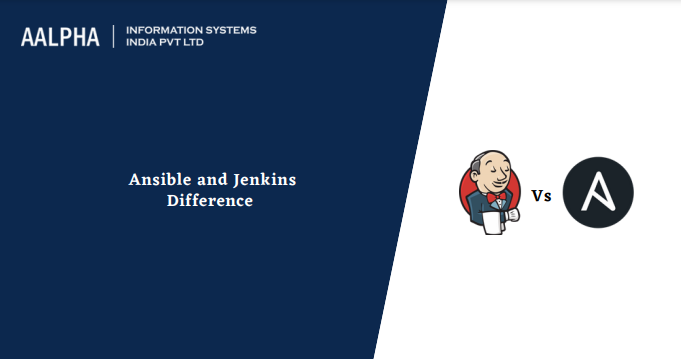The success of any software development firm relies on its culture and adherence to the appropriate development principles and methods. DevOps has been at the peak of these “correct development principles” during the last decade.
Instead of providing a set of rules, DevOps aims to establish a culture and mentality that enables teams to produce quicker without sacrificing quality. A variety of technologies have arisen to assist couples in applying DevOps concepts. These technologies are founded on build & release automation, test automation, and infrastructure automation.
Jenkins, Ansible, GitHub, Nagios, Prometheus, Grafana, and SonarQube are a few prominent tools in this field. Jenkins is the most popular automation tool among them. In contrast, Ansible has acquired appeal in the realm of orchestration.
What is Ansible
Ansible is an open-source IT engine used to automate the deployment of applications, service orchestration, cloud services, and other IT technologies.
Considering the build and release factors, deploying software to the production environment is crucial. Another essential duty necessary to develop and maintain such setups is configuration management.
A company’s number of production servers may range from tens to thousands. Managing such large numbers manually is tiresome, time-consuming, and monotonous. Additionally, deployments must be expedited and error-free. Automation becomes the solution.
Initially, developers deployed programs across several servers using shell scripts. This led to the development of automation technologies such as Chef, Ansible, and Puppet.
In recent years, Ansible has gained popularity due to the following factors:
- The open-source version of Ansible includes many of the enterprise version’s capabilities.
- Red Hat offers superior customer service for the Enterprise edition.
- Ansible provides a straightforward configuration since it uses the widely and understandable YAML language.
- Structured into modules, roles, and playbooks, the system can manage complicated processes.
- Highly adaptable in environment orchestration, regardless of the target operating system. Possessing a versatile inventory declaration.
- Ansible has no agent. It operates through SSH and eliminates the need to install and execute an agent on the target machine.
- Due to its easy construction and operation, it is considerably more efficient and effective than other tools.
- Multiple domains like Configuration Management, Application Deployment, Infrastructure Provisioning, and Orchestration are managed by this platform.
What is the Ansible Tower?
Ansible Tower is the graphical user interface for Ansible. It is developed by Red Hat and enables IT infrastructure centralization and management. Other features include a role-based access control system, work scheduling, integrated alerts, and graphical inventory management.
What is Jenkins
Jenkins is an open-source tool for automation. Jenkins facilitates the automation of build, testing, and release processes. It offers an assortment of plugins for integrations with most CI/CD technologies. It can operate on any operating system with the installed Java Runtime Environment (JRE). Installation is possible through native system packages or as a standalone application on any computer. There is also a Docker version of Jenkins available.
Jenkins has grown in prominence within the DevOps community due to its adaptability and substantial community support. Among its most renowned products are:
- Continuous Integration and Continuous Delivery — Its plethora of plugins may be configured as a primary CI server and manage CD for complicated applications.
- Distributed — Permits connection to numerous agent nodes, aiding task distribution across platforms.
- Plugins — Due to the vast number of plugins accessible in Jenkins’ update center, tools are combined with Jenkins. The majority of tool developers also produce plugins for Jenkins.
- Extensible — Due to its widely dispersed design and extensive plugin support, Jenkins is capable of performing a large array of jobs.
- Simple Installation – Packages for all supported operating systems are available for download. Java is the sole need to install Jenkins.
- Simple Configuration — A clean and engaging user interface makes configuring projects simple. There is assistance for the majority of settings.
What differentiates Jenkins and Ansible?
Ansible is a Red Hat product. Ansible is an open-source service employment application. It is a solution for application deployment, configuration management, and software provisioning. Using Ansible, you may automate many IT tasks.
Jenkins is an open-source CI server written in Java for Continuous Integration and automation operations. Users can design and test projects while swiftly incorporating modifications. A vast number of Jenkins plugins are compatible with CI/CD tools. These enable Jenkins to interface with other applications and expand its capabilities. Jenkins can incorporate the whole of an application’s development life cycle. It can manage tasks like creation, testing, packaging, deployment, and analysis.
How to Choose between Jenkins and Ansible.
Today, teams must evaluate the constraints of both technologies and then choose the one that best meets their needs.
- Ansible would be the tool of choice for systems with a large number of servers that are very sophisticated. Its efficient inventory management mechanism improves system administration.
- Jenkins is preferable for smaller operations involving many tool calls, such as build, code quality analysis, and testing.
Community support is extensive and trustworthy for both tools. However, Redhat’s expertise and strength support Ansible.
Finally, consult with DevOps consulting company to know more about ansible and jenkins
